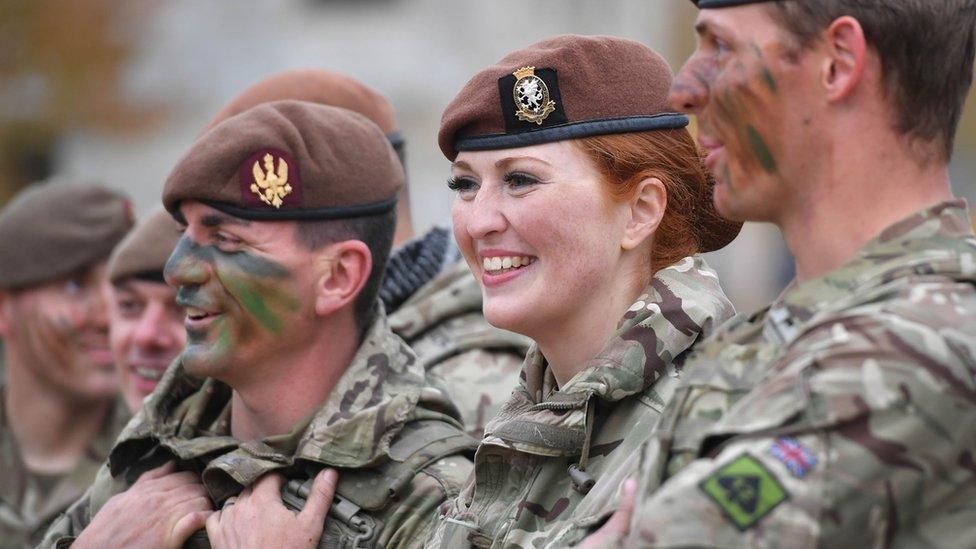Armed forces: Recruits don't need to have lived in Britain
- Published
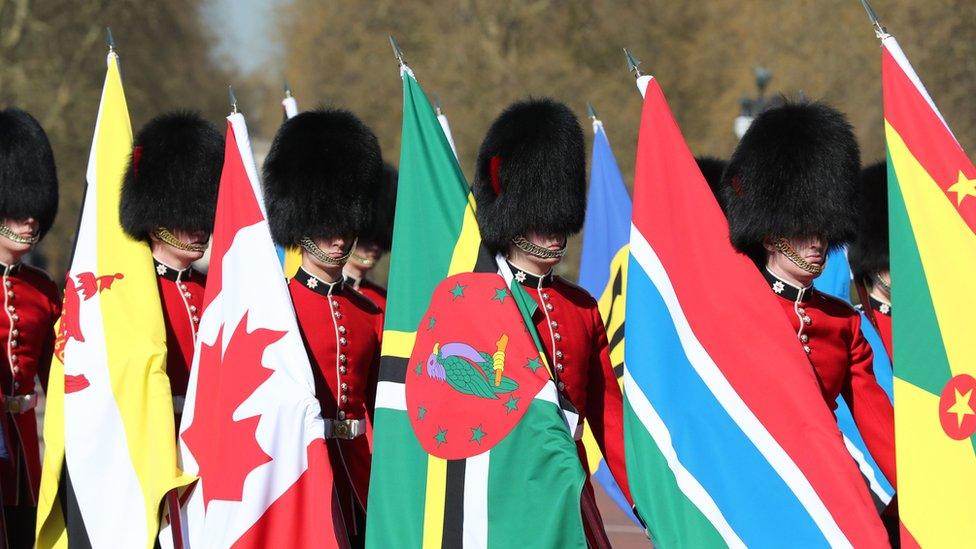
Soldiers of the Coldstream Guards carry flags of the 53 Commonwealth countries
More foreign nationals living abroad will be able to join the armed forces, the government is to announce.
Currently, only 200 Commonwealth citizens per year can apply without having lived in the UK for five years.
But in a bid to recruit more servicemen and women to the Army, Royal Navy and Royal Air Force, the Ministry of Defence is lifting this cap.
The armed forces are short of 8,200 soldiers, sailors and air personnel, a report found, external earlier this year.
It is the worst shortage since 2010, said the independent government watchdog, the National Audit Office.

You may also like:

Ministers are expected to announce the change to recruitment rules on Monday.
It means people from Commonwealth countries - including India, Australia, Kenya, Fiji and Sri Lanka - will be considered for roles, even if they have never lived in Britain.
A rule introduced in 2016, external already allows 200 Commonwealth citizens who have not met the requirement of living in the UK for five years to apply for a limited number of jobs every year.
It is hoped the changes will lead to an extra 1,350 people being recruited every year.
The five-year UK residency requirement for Commonwealth recruits was first waived in 1998, before being reintroduced in 2013.
Miandad Matthew, who grew up in Saint Lucia, served from 1999-2008 in the Royal Dragoon Guards. He signed up to the British army after going on holiday to London to visit family.
"Ever since I was little boy I wanted to be a solider," the 40-year-old, who now lives in Grays, Essex.
"I enjoyed my time in the Army. I travelled to a lot of different countries and saw other cultures.
"Before I joined up I was quite a shy person and the Army changed me completely."

Miandad Matthew grew up in St Lucia and served in the British army for nearly 10 years
He joined when there was no requirement to have lived in the UK for five years and he said it was good the rules were being relaxed again.
"It will give quite a few young guys in the Caribbean more career opportunities," he said.
According to the Daily Telegraph,, external which first published details of the plan in Monday's paper, the air force and navy will begin recruiting immediately and the Army will open applications early next year.
Applications from citizens of countries outside the Commonwealth will not be accepted, the paper adds. Citizens of Ireland and also Gurkhas from Nepal can already join because of special rules.
Recruitment crisis
April's National Audit Office report also said there were "much larger shortfalls" in the number of military engineers, pilots and intelligence analysts.
It said the armed forces were involved in 25 operations worldwide in 2016-17 - and the air force is undertaking more missions than it has for a quarter of a century.
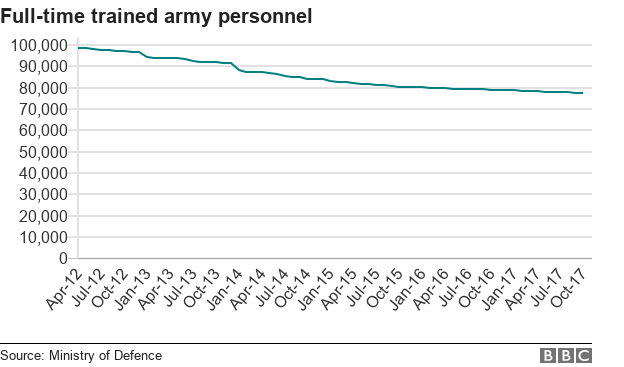
And a Conservative MP's report, external in July 2017 on the state of Army recruitment warned that the armed forces were "hollowing out" due to recruitment issues.
Mark Francois, who spent a year meeting with MoD officials as well as military personnel, said there was a "perfect storm" of high employment rates and an ageing population with fewer people of military age.
An increase in obesity and also a rising proportion of black, Asian and minority ethnic people - who he said have until now been less likely to apply for military service - are also factors, he added.
He made many recommendations - including attracting more black, Asian and minority ethnic recruits and women.
Last month, it was announced that women were now allowed to apply for all roles in the British military for the first time in history.
The Army's new tests are based on skills required in close combat roles.
- Published3 February 2018
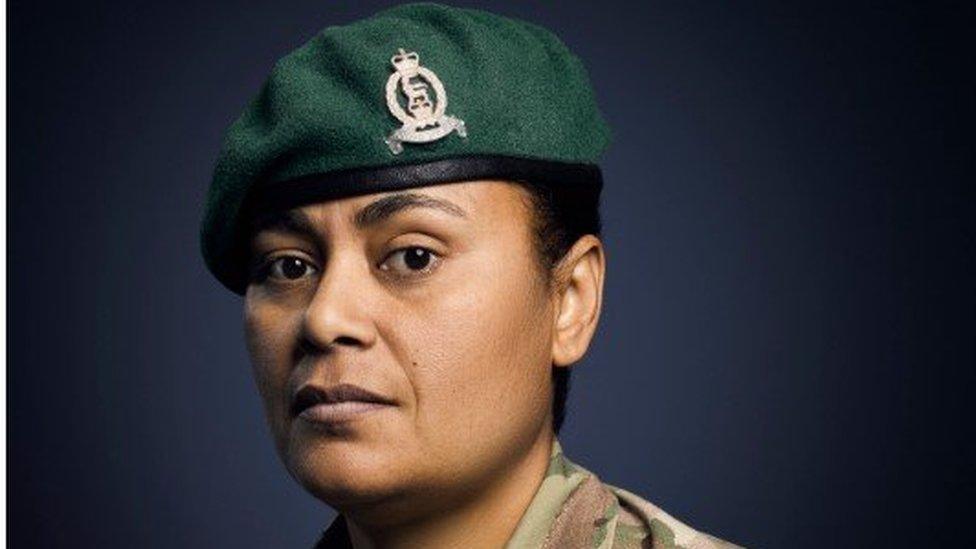
- Published10 January 2018

- Published27 November 2017
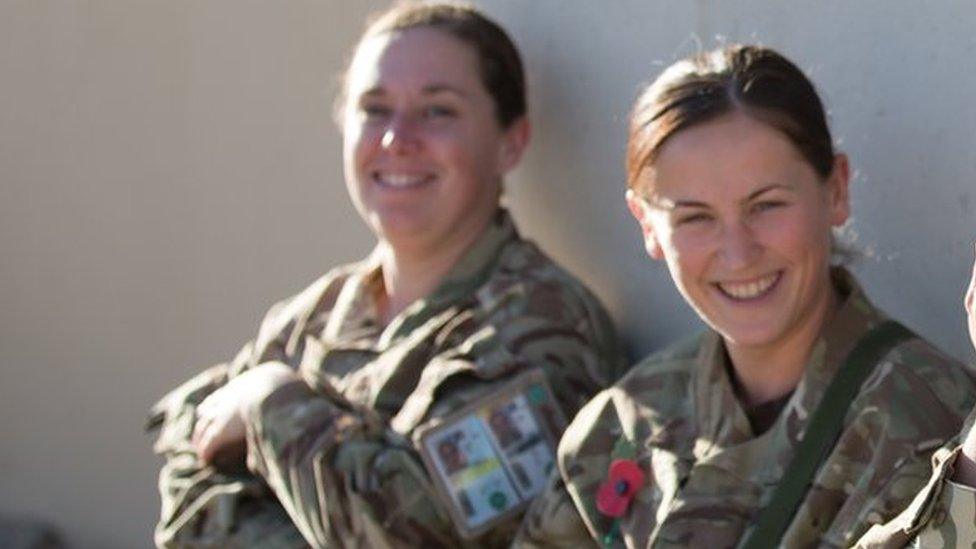
- Published19 February 2018
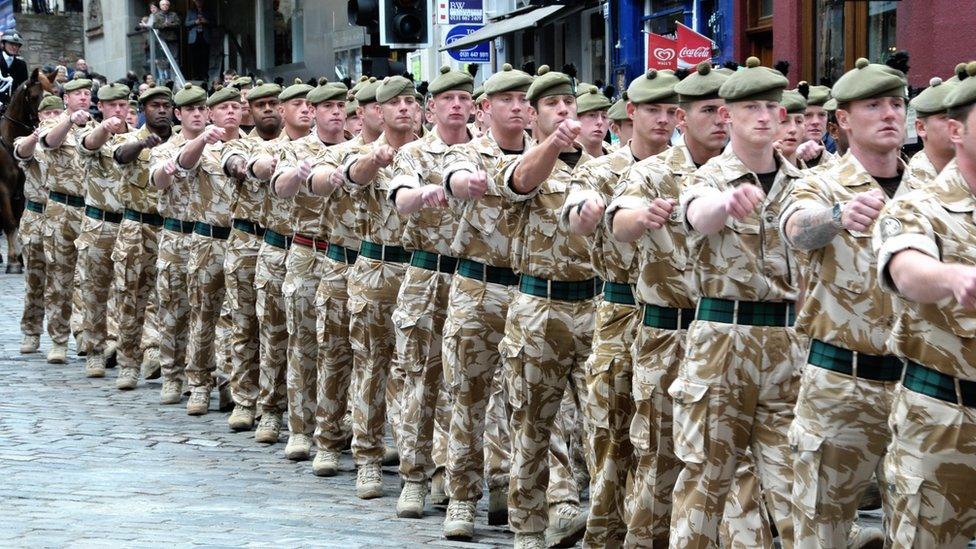
- Published25 October 2018
